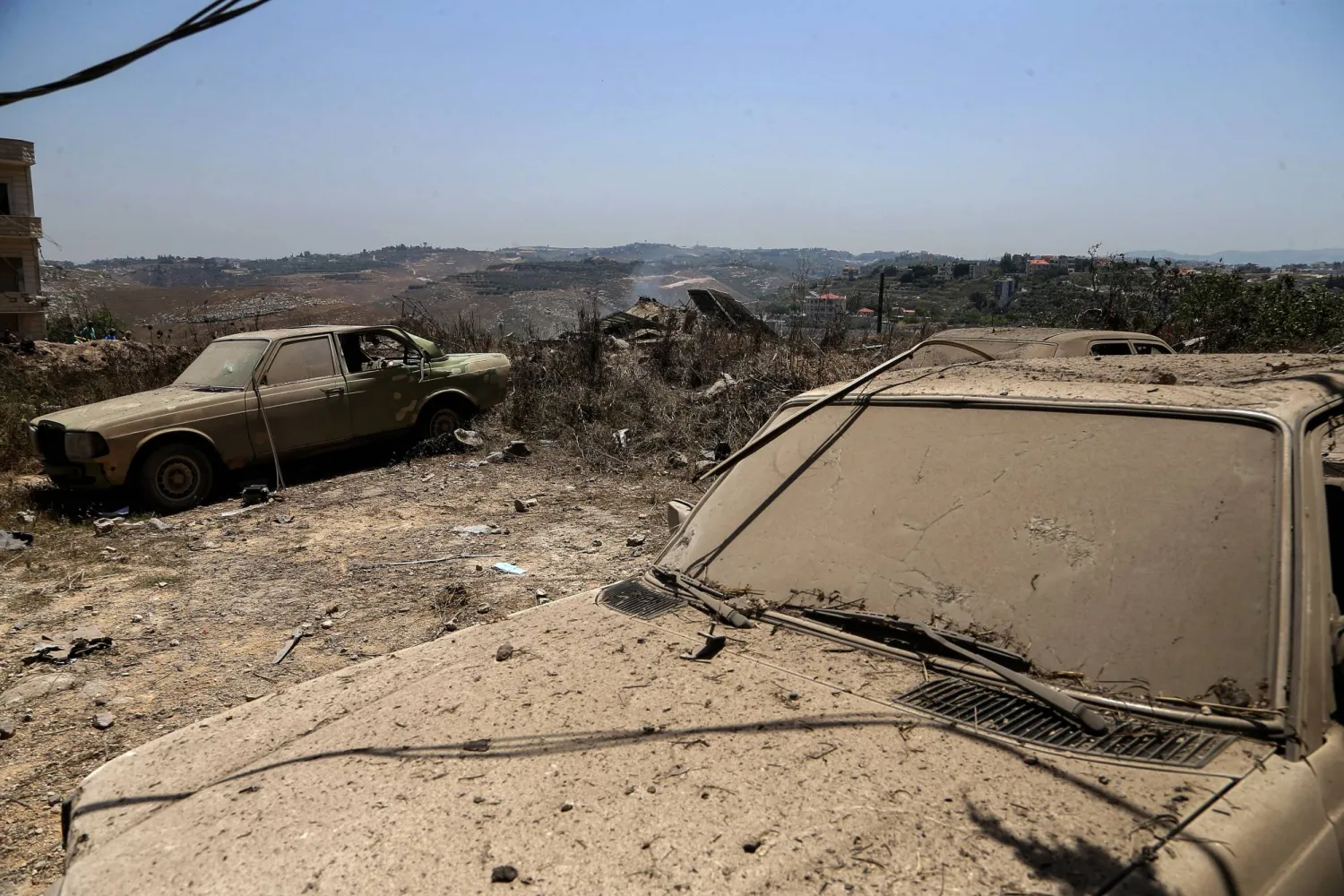Israel wants to hurt Hezbollah but not drag the Middle East into all-out war, two Israeli officials said on Monday, as Lebanon braced for retaliation after a rocket strike that killed 12 children and teenagers in the Israeli-occupied Golan Heights.
Two other Israeli officials said Israel was preparing for the possibility of a few days of fighting following Saturday's rocket strike at a sports field in a Druze town that it blamed on the Iranian-backed Lebanese group Hezbollah.
Hezbollah has denied any connection with the incident.
Iran's President Masoud Pezeshkian said any Israeli attack on Lebanon would have "serious consequences" for Israel, Iranian state media quoted him on Monday as telling French President Emmanuel Macron in a phone call. Pezeshkian did not elaborate.
All four Israeli officials, who included a senior defense official and a diplomatic source, spoke to Reuters on condition of anonymity and gave no further information about Israel's plans for retaliation.
"The estimation is that the response will not lead to an all-out war," said the diplomatic source. "That would not be in our interest at this point."
The incident has increased concerns that months of cross-border hostilities between Israel and the heavily armed Hezbollah could spiral into a broader, more destructive war.
An Israeli drone strike killed two Hezbollah fighters in south Lebanon on Monday, security sources said. They were the first fatalities in Lebanon since Saturday's incident. Three other people including an infant were wounded in that strike, according to an official in the Lebanese civil defense.
The Israeli military said its air defenses downed a drone that crossed from Lebanon into the Western Galilee area on Monday.
'LIMITED' RESPONSE FLAGGED
Israel's security cabinet has authorized Prime Minister Benjamin Netanyahu and Defense Minister Yoav Gallant to decide on the manner and timing of a response to Saturday's strike in the Golan town of Majdal Shams.
Israel's Yedioth Ahronoth newspaper quoted unidentified officials as saying the response would be "limited but significant".
The report said options ranged from a limited attack on infrastructure, including bridges, power plants and ports, to hitting Hezbollah arms depots or targeting Hezbollah commanders.
In a statement issued by his office on Monday after he visited Majdal Shams, Netanyahu said: "The state of Israel will not and cannot let this pass. Our response will come and it will be harsh."
Prompted by the Gaza war, the hostilities between Israel and Hezbollah have been their worst since they went to war in 2006.
Hezbollah, an ally of Palestinian armed group Hamas, has said its campaign of rocket and drone attacks on Israel has aimed to support the Palestinians, and indicated it will only cease fire when Israel's offensive on Gaza stops.
The conflict at the Israel-Lebanon border has forced tens of thousands of people to leave their homes on both sides.
US Secretary of State Antony Blinken, in a phone call with Israeli President Isaac Herzog on Monday, emphasized the importance of preventing escalation of the conflict, the US State Department said.
They discussed efforts to reach a diplomatic solution to allow citizens on both sides of the border to return home.
Washington has also blamed Hezbollah for the rocket strike.
The White House later reiterated its stance that Israel has every right to respond to Hezbollah following Saturday's attack.
White House national security spokesman John Kirby also said the Golan incident should not affect ongoing negotiations to clinch a ceasefire in Gaza and secure the release of hostages held there by Hamas.
The UNIFIL peacekeeping mission in south Lebanon said it had intensified contacts with Israel and Lebanese authorities to dial down tensions. "Nobody wants to start a wider conflict, but a miscalculation could trigger one. There is still space for a diplomatic solution," UNIFIL spokesperson Andrea Tenenti said.
Lebanese caretaker Foreign Minister Abdullah Bou Habib stressed the need for "self-restraint to avoid a regional war" during talks with the UN Special Coordinator for Lebanon, Jeanine Hennis-Plasschaert.
Flights at Beirut's international airport have been cancelled or delayed. Jordan's flag carrier Royal Jordanian has suspended flights to Beirut on Monday and Tuesday, Jordanian TV reported, citing a statement from the airline.
Both Israel and Hezbollah have appeared at pains to avoid a full-scale war since they began trading blows in October.
Hezbollah has denied firing the rocket that killed the youngsters. It said on Saturday it had fired a missile against a military target on the Golan, a border region Israel seized from Syria after the 1967 Middle East war and has since annexed in a move not generally recognized internationally.
Israeli strikes have killed around 350 Hezbollah fighters in Lebanon and more than 100 civilians, including medics, children and journalists, according to security and medical sources and a Reuters tally of Hezbollah death notifications.
Israel says 23 civilians have been killed in Hezbollah attacks since October, along with at least 17 soldiers.









